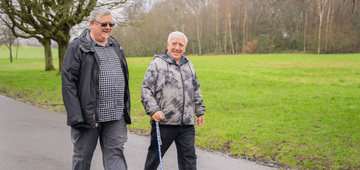As Christmas draws near, RSPH has revealed what makes us most stressed around the festive season. Polling more than 2,000 UK adults, it was found that family arguments are the most stressful part of Christmas, with more than three quarters (76%) of people claiming this impacts negatively on their mental wellbeing at Christmastime.
It’s not all bad news for families, however, as more four in five people (84%) said spending time with family improved their mental wellbeing over the festive period, coming a narrow second on the list of positive influences, behind having time off work. Giving presents came in at number four on the positive list, above getting presents at number eight (83% and 74% of respondents respectively).
Also ranking in the top three negative wellbeing aspects of Christmas, and perhaps not unrelated, were both getting ill and suffering through hangovers. The top 10 rankings (sorted by mean score) are as follows:
Worst for mental wellbeing at Christmas: Best for mental wellbeing at Christmas:
| 1. Family arguments | 1. Having time off work |
| 2. Getting sick | 2. Spending time with family |
| 3. Hangovers | 3. Spending time with friends |
| 4. Working on Christmas day | 4. Giving presents |
| 5. Crowds | 5. Going for a walk on Christmas day |
| 6. Spending more money than usual | 6. Christmas food |
| 7. Driving long distances | 7. Christmas decorations and lights |
| 8. Pressure to achieve the perfect Christmas | 8. Getting presents |
| 9. Reduction in the amount of exercise you can do | 9. Decorating the Christmas tree |
| 10. Christmas adverts | 10. Donating to charity |
Commenting on the findings, Shirley Cramer CBE, Chief Executive of RSPH, said: “While Christmas is an enjoyable time for many people, it is not without its stresses and taking care of your mental wellbeing is as important as ever. One of the best ways to start doing this is by taking notice of the relationship between your mood and particular activities and scheduling more of the ‘better mood’ activities every week – a process called ‘activity scheduling’.
“It is no coincidence that most components of the ‘five ways to wellbeing’ are present in the Christmas top 10, be it ‘connecting’ by spending more time with friends or family, ‘being active’ by taking a walk on Christmas day, or ‘giving’, either with presents or to charity. So this Christmas, be sure to focus on what makes you feel good – and try to minimise those things you know make you feel bad.”
Find out more about the ‘five ways to wellbeing’ here. Front line health and care staff interested in doing more to help people self-manage their mental wellbeing can also benefit from Connect 5 training.



